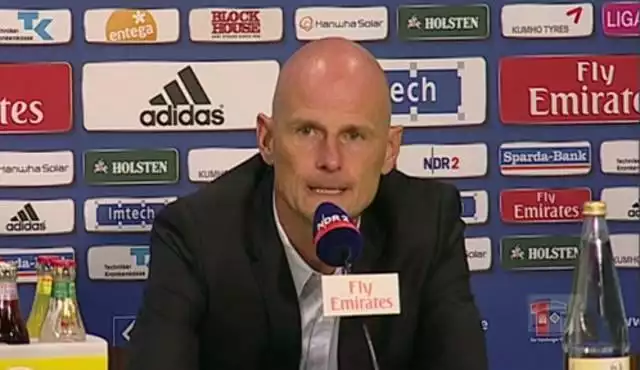The role of a football manager in the Danish Superliga
Football managers in the Danish Superliga play a vital role in shaping the success of their teams. They are responsible for creating and implementing a winning strategy, developing player talent, managing team dynamics, and making crucial decisions during matches. In a league as competitive as the Danish Superliga, managers need to be at the top of their game to achieve success. This section will delve into the unique challenges and responsibilities that football managers face in the Danish Superliga.
Managing a team in the Danish Superliga requires a deep understanding of the league's dynamics, its history, and the expectations of fans and club owners. The Superliga is known for its high level of competition, with teams vying for the top spots in the league table. Managers must be adept at handling the pressure and maintaining a strong presence both on and off the pitch. They need to be strategic thinkers, excellent communicators, and inspiring leaders who can motivate their players to perform at their best.
In addition to on-field responsibilities, managers in the Danish Superliga also play a crucial role in shaping the future of their clubs. They are involved in player recruitment, contract negotiations, and scouting for young talent. This requires a keen eye for talent, an understanding of player development, and the ability to build strong relationships with agents and other stakeholders. The role of a football manager in the Danish Superliga is multi-faceted and demanding, but with the right strategies in place, managers can excel and guide their teams to success.
Tip 1: Building a strong team culture
Building a strong team culture is essential for success in the Danish Superliga. A cohesive and united team is more likely to perform well on the field and overcome challenges. As a manager, it is your responsibility to create a positive and inclusive environment where players feel valued and motivated. This starts with setting clear expectations and establishing a shared vision for the team.
To build a strong team culture, you need to foster open communication and encourage collaboration among players. Regular team meetings and discussions can help in building trust and strengthening relationships within the squad. It is also important to recognize and celebrate individual and team achievements, as this boosts morale and creates a sense of camaraderie.
Another crucial aspect of building a strong team culture is to lead by example. As a manager, your behavior and attitude set the tone for the team. Show professionalism, dedication, and a strong work ethic, and your players will follow suit. By creating a positive and supportive team culture, you can create an environment where players can thrive and reach their full potential.
Tip 2: Developing a clear tactical plan
In the Danish Superliga, where the competition is fierce, having a clear tactical plan is essential. Your team should have a defined playing style and a well-thought-out strategy that takes into account the strengths and weaknesses of both your own players and your opponents. Developing a clear tactical plan requires a thorough understanding of your squad's abilities and the ability to adapt your tactics based on the strengths and weaknesses of your opponents.
When developing a tactical plan, it is crucial to assess your players' individual skills and attributes. Identify their strengths and find ways to maximize their potential on the field. Additionally, analyze your opponents' playing style and devise strategies to exploit their weaknesses while nullifying their strengths. This could involve adjusting formations, making substitutions, or implementing specific game plans for different opponents.
Regular training sessions and drills focused on implementing and fine-tuning your tactical plan are essential. Repetition, practice, and attention to detail will help your players understand their roles and responsibilities within the system. By developing a clear tactical plan and ensuring that your players are well-prepared, you increase your team's chances of success in the Danish Superliga.
Tip 3: Effective player recruitment and scouting
Player recruitment and scouting play a crucial role in the long-term success of a team in the Danish Superliga. As a manager, it is essential to have a comprehensive understanding of the player market and identify talent that aligns with your team's needs and playing style. Effective player recruitment involves a combination of thorough scouting, data analysis, and a keen eye for talent.
Scouting for new players requires a systematic approach. Identify the positions that need strengthening and create a profile of the ideal player for each position. This should include technical skills, physical attributes, and mental characteristics that are important for success in your playing style. Use your network, attend matches, and leverage scouting databases to identify potential targets.
Once you have identified potential recruits, it is important to conduct thorough assessments. Watch their matches, analyze their statistics, and gather as much information as possible about their playing style, attitude, and off-field behavior. Assessing a player's fit within your team's culture is just as important as evaluating their technical abilities.
Effective player recruitment also involves negotiating contracts and ensuring that the terms are favorable for both the player and the club. As a manager, you need to strike a balance between attracting top talent and managing the club's budget. Develop strong relationships with agents and use your negotiation skills to secure the best deals for the club.
By adopting an effective player recruitment and scouting strategy, you can strengthen your team and give yourself a competitive edge in the Danish Superliga.
Tip 4: Building strong relationships with players
Building strong relationships with your players is crucial for creating a positive and productive team environment. When players feel valued, supported, and understood, they are more likely to perform at their best and remain loyal to the team. As a manager, it is important to invest time and effort in developing personal connections with each player.
Get to know your players on a personal level. Understand their motivations, aspirations, and concerns. Show genuine interest in their lives both on and off the field. This will help you build trust and establish open lines of communication with your players.
Communication is key in building strong relationships. Be approachable and create an environment where players feel comfortable expressing their opinions and concerns. Regular one-on-one meetings can provide an opportunity for players to share their thoughts and for you to provide feedback and guidance.
Additionally, it is important to be fair and consistent in your interactions with players. Treat everyone with respect and ensure that each player feels valued, regardless of their role within the team. Celebrate individual and team successes, and provide constructive feedback when necessary.
By building strong relationships with your players, you create a supportive and harmonious team environment that sets the stage for success in the Danish Superliga.
Tip 5: Managing player fitness and injuries
In the physically demanding world of football, player fitness and injury management are crucial for success. As a manager in the Danish Superliga, it is your responsibility to ensure that your players are in peak physical condition and that their injuries are managed effectively.
Implement a comprehensive fitness program that includes regular training sessions, strength and conditioning exercises, and recovery protocols. Collaborate with fitness coaches and medical staff to develop individualized plans for each player based on their specific needs and goals. Regular fitness assessments can help track progress and identify areas for improvement.
Injury prevention is equally important. Implement warm-up routines and exercises that focus on injury-prone areas of the body. Ensure that your players are using proper technique and equipment to minimize the risk of injuries. Additionally, create a culture of open communication where players feel comfortable reporting any discomfort or pain.
In the unfortunate event of an injury, it is crucial to have a well-structured rehabilitation program in place. Work closely with the medical team to design individualized plans for injured players, focusing on their recovery and return to full fitness. Provide emotional support and encouragement to keep their spirits high during the rehabilitation process.
By effectively managing player fitness and injuries, you can maximize your team's performance and minimize the risk of setbacks in the Danish Superliga.
Tip 6: Handling media and public relations
Managing the media and public relations is an important aspect of being a football manager in the Danish Superliga. As the face of the team, you are responsible for maintaining a positive image and effectively communicating with the media and fans.
Developing good relationships with journalists and media outlets can help in shaping the narrative surrounding your team. Be accessible and proactive in providing information and updates. Organize press conferences and interviews to keep the media informed and engaged. However, it is important to strike a balance between openness and protecting the privacy and interests of your team and players.
Media training for yourself and your players can be beneficial in navigating interviews and press conferences. Teach your players how to handle media scrutiny, answer questions confidently, and stay focused on the game. Emphasize the importance of professionalism and respect when interacting with the media.
Public relations extend beyond media interactions. Engage with fans through social media platforms, organize fan events, and create opportunities for supporters to connect with the team. Actively involve your players in community initiatives and charity work to build a positive reputation for the team.
By effectively managing media and public relations, you can create a positive image for your team and strengthen the bond between the club, fans, and the wider community.
Tip 7: Effective in-game management and decision-making
In-game management and decision-making are critical for success in the Danish Superliga. As a manager, you need to make quick and accurate decisions that can have a significant impact on the outcome of a match. Developing effective in-game management skills requires experience, tactical knowledge, and the ability to stay calm under pressure.
Before each match, analyze your opponents' strengths and weaknesses and develop a game plan accordingly. Consider factors such as formations, player matchups, and potential substitutions. However, it is important to remain flexible and adapt your tactics based on the flow of the game.
During the match, maintain clear and concise communication with your players. Provide instructions and guidance to help them make decisions on the field. Monitor the game closely and be prepared to make timely substitutions or tactical adjustments when necessary. Assess the performance of individual players and the team as a whole and make changes accordingly.
Keep in mind that decision-making under pressure can be challenging. Trust your instincts and rely on your experience and knowledge. Reflect on your decisions after the match and learn from both your successes and failures. Effective in-game management requires a combination of strategic thinking, tactical awareness, and the ability to make quick and decisive decisions.
Tip 8: Analyzing and learning from match data
In the modern era of football, data analysis plays a significant role in decision-making and team performance. As a manager in the Danish Superliga, it is important to embrace the use of match data and leverage it to gain insights and improve your team's performance.
Invest in data analysis tools and software that provide comprehensive statistics and performance metrics. Analyze data related to player performance, team formations, possession, passing accuracy, and other key performance indicators. Identify patterns, trends, and areas for improvement based on this data.
Collaborate with data analysts and coaching staff to interpret the data and derive actionable insights. Use this information to fine-tune your tactics, identify areas of weakness in your opponents, and maximize your team's strengths. Data analysis can also help in identifying individual player development needs and designing training programs tailored to their specific requirements.
Effective data analysis requires a balance between quantitative insights and qualitative observations. While data provides valuable information, it is important to consider the context and nuances of the game. Combine data analysis with your own observations and the expertise of your coaching staff to make informed decisions.
By embracing data analysis and learning from match data, you can gain a competitive edge in the Danish Superliga and continuously improve your team's performance.
Tip 9: Managing team morale and motivation
Maintaining high team morale and motivation is essential for success in the Danish Superliga. As a manager, it is your responsibility to create an environment where players feel motivated, inspired, and eager to perform at their best.
Regularly assess the morale of your team and individual players. Address any concerns or conflicts promptly and provide support and guidance when needed. Celebrate individual and team successes to boost morale and create a positive atmosphere within the squad.
Motivation is a key factor in driving performance. Understand what motivates each player and tailor your approach accordingly. Some players may thrive on competition and external recognition, while others may be motivated by personal development or team success. Use a mix of individual and team goals to keep players engaged and motivated throughout the season.
Communication plays a crucial role in managing team morale and motivation. Be transparent and honest with your players. Provide constructive feedback and guidance, while also acknowledging their efforts and achievements. Regularly communicate the team's objectives and the importance of each player's role in achieving those goals.
Additionally, create a culture of continuous learning and improvement. Encourage your players to take ownership of their development and provide opportunities for them to learn and grow. Invest in their personal and professional development by organizing workshops, inviting guest speakers, and providing access to resources and training materials.
By effectively managing team morale and motivation, you can create a positive and driven team environment that enhances your chances of success in the Danish Superliga.
Tip 10: Continuous learning and improvement as a manager
Continuous learning and improvement are essential for football managers in the Danish Superliga. The game is constantly evolving, and staying up to date with the latest trends, tactics, and techniques is crucial for your success as a manager.
Invest time in studying the game and learning from other successful managers. Analyze matches, read books and articles, and watch interviews and documentaries to gain insights and inspiration. Attend coaching conferences and seminars to network with other professionals and learn from their experiences.
Reflect on your own performance as a manager and identify areas for improvement. Seek feedback from your coaching staff, players, and other stakeholders. Be open to criticism and use it as an opportunity for growth. Develop a growth mindset and embrace challenges as learning opportunities.
Additionally, build a strong network of mentors and peers who can provide guidance and support. Surround yourself with individuals who share your passion for the game and who can challenge your thinking. Engage in discussions, share ideas, and collaborate with others to broaden your knowledge and perspective.
Continuous learning and improvement not only benefit your own development but also contribute to the success of your team. By staying ahead of the curve and embracing new ideas and approaches, you can guide your team to success in the Danish Superliga.










